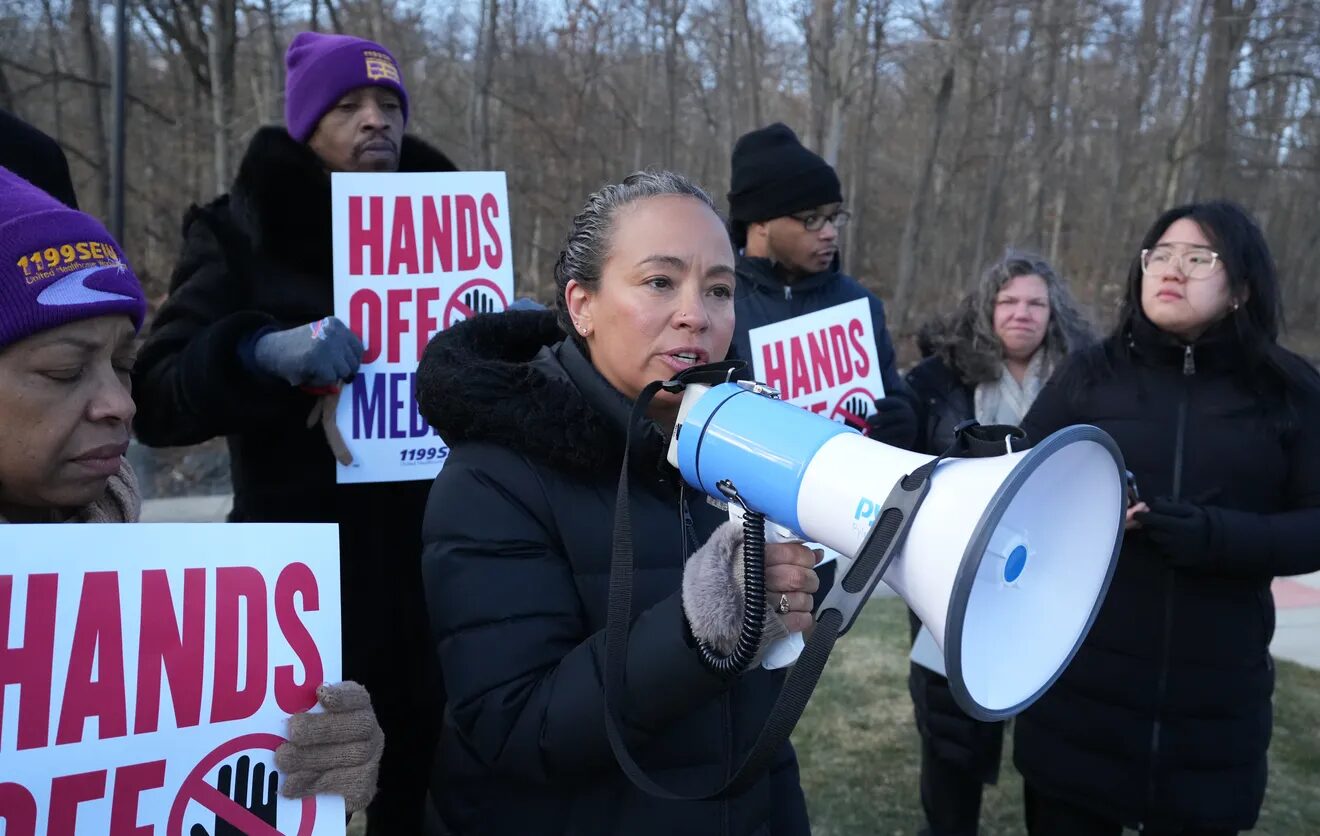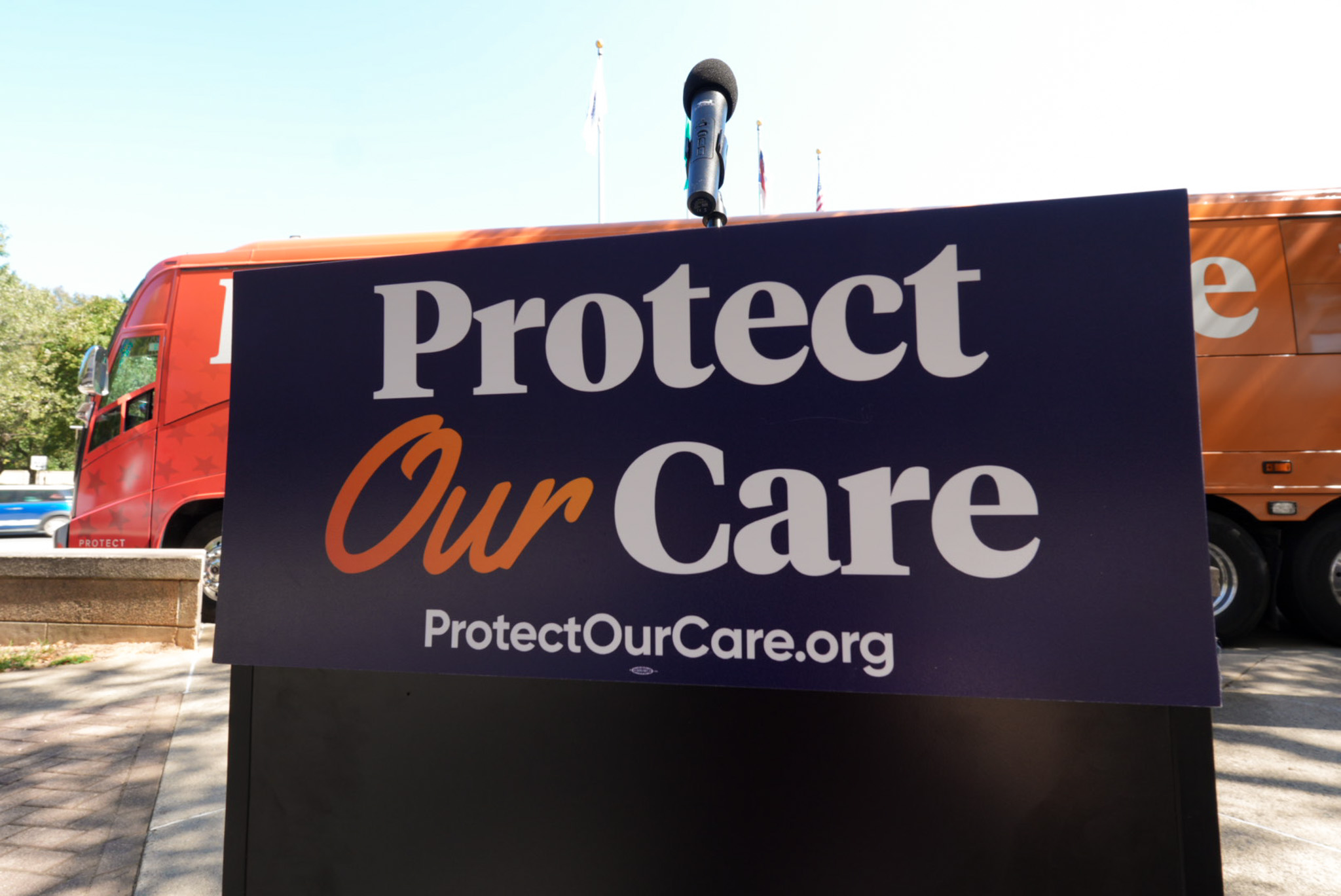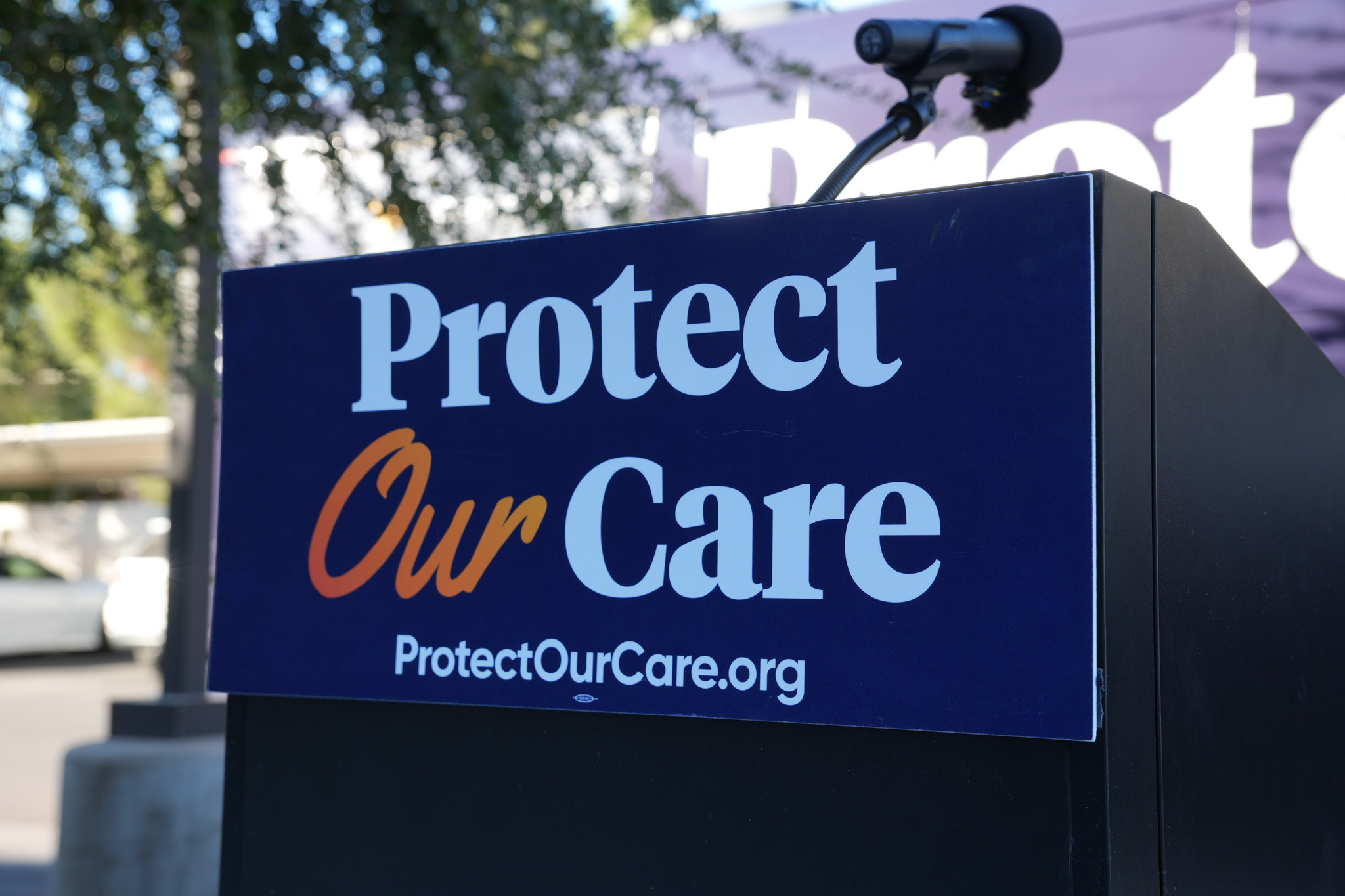
This April marks the eighth annual Medicaid Awareness Month. Medicaid is the largest health insurance program in the country, providing health care for over 70 million Americans. About 15 million of those with Medicaid as their insurer experience a mental health condition and roughly 1 million enrollees receive treatment for an opioid addiction.
Despite its importance to millions of Americans, Trump and Republicans in Congress are determined to gut Medicaid in order to give billionaires and big corporations another tax cut, even if it means dismantling the health care they rely on. Congressional Republicans are pressing forward with their budget, which will slash $880 billion from Medicaid, putting the health care of tens of millions of Americans at risk. A recent report by the Joint Economic Committee found that the cuts to Medicaid, proposed by Republicans, would significantly harm mitigation efforts to stop the opioid epidemic. Defunding Medicaid means thousands of people would lose access to addiction treatment. Recent polling found there is broad opposition across party lines to any cuts to Medicaid, with 67 percent saying Congress should increase spending on Medicaid or keep it about the same.
During Medicaid Awareness Month, Protect Our Care is continuing its “Hands Off Medicaid” campaign with theme weeks to underscore the importance of Medicaid across the country. Alongside partners, lawmakers, and other advocates, Protect Our Care is working to defend Medicaid from the Republican-led plan to slash funding to pay for another round of tax cuts for the wealthy and big corporations.
By The Numbers
- More Than 1 in 3 Nonelderly Adult Medicaid Enrollees Have a Mental Health Condition. Many of these enrollees experience severe symptoms and some experience overlapping mental illnesses which can complicate treatment and impact daily functioning.
- Adults on Medicaid With Mental Health Conditions Receive Treatment for Their Condition at Rates That Are the Same or Higher Than Those With Private Insurance or Those Who Are Uninsured. In 2023, 59 percent of adults with a mental health condition received treatment through Medicaid compared to 55 percent of privately insured individuals and 37 percent of those who are uninsured.
- 2.3 Million People With Serious Mental Health Conditions Are Covered by Medicaid. These conditions include bipolar disorder, schizophrenia, and other psychotic disorders.
- Two-Thirds of Medicaid Enrollees With a Mental Health Condition Have at Least One Other Chronic Condition. Without Medicaid coverage, many people with comorbidities would be unable to afford care for both a mental health condition and chronic physical disease or illness.
- Medicaid Expansion Allows 600,000 to Receive Addiction Care. Roughly 1 million Medicaid enrollees depend on the program for addiction care, with more than 60 percent gaining coverage through Medicaid expansion.
- Without Medicaid, Those With Opioid Addictions Would Have to Choose Between Affording Treatment or Putting Food on the Table. Medicaid spends anywhere from $5,874 to $15,183 per patient that receives opioid treatment. Cutting Medicaid means thousands of people will lose access to addiction treatment and would go uninsured, not replacing their loss of coverage with private insurers.
Americans with Mental Health Conditions Rely on Medicaid for Care. Nearly 50 million Americans struggle with a mental health problem. Of those, about 15 million are on Medicaid, making up about 21 percent of all enrollees, including 2.3 million with a serious mental health condition such as bipolar disorder, schizophrenia, or other psychotic disorders. People with Medicaid for insurance receive care for their mental health conditions at rates higher or similar to private insurers and much higher rates than those who are uninsured. In 2023, 59 percent of adults with a mental health condition received treatment through Medicaid compared to 55 percent of privately insured individuals and 37 percent of those who are uninsured.
Medicaid Provides Crucial Benefits To Children With Autism. Medicaid disproportionately serves children with autism: 5 percent of children aged 3 to 17 with Medicaid and CHIP have autism or autism spectrum disorder, while 2 percent of children with private insurance have autism. Autism is considered a disability under Medicaid allowing individuals with autism to qualify for care through Medicaid. Medicaid covers home and community based services that allow people with autism to participate in their communities. Health coverage is especially important for this population with 97 percent of children with public coverage reporting a coexisting disability, such as a learning disability, developmental delay, speech disorder, or other mental health conditions. Medicaid provides critical funding for schools to get equipment, services, and personnel that students with Individualized Education Plans require to succeed. Medicaid funding ensures schools can provide the wide range of services needed to educate students with disabilities and allows them to comply with Individuals With Disabilities Education Act (IDEA) requirements despite strained school budgets.
Medicaid Is Essential To Combat America’s Youth Mental Health Crisis. Nearly 1 in 5 children in the United States struggle with a mental, emotional, developmental, or behavioral disorder. Medicaid provides 31 million children with the help that they need by requiring states to cover mental health screenings as part of the EPSDT benefit. When asked why they missed class, 16 percent of high school students cited anxiety, and another 12 percent listed sadness and depression, according to a fall 2023 survey. Medicaid is supporting efforts to provide mental health support and helping them show up to school feeling their best.
Mental Health is a Comorbidity For 10 Million Medicaid Enrollees. Comorbidity is when an individual has more than one chronic illness or condition. People with a mental health problem are twice as likely to have comorbidity than those without a diagnosed condition. The most common chronic condition that appears alongside mental illness is substance use disorder. 1 in 4 Medicaid enrollees diagnosed with a mental health condition are also diagnosed with substance use disorder. Chronic physical conditions also commonly occur alongside mental health issues and are reported together in 20 to 70 percent of cases. Anxiety, depression, bipolar disorder, and schizophrenia are linked to 2 out of 3 chronic physical disorders. Without Medicaid coverage, many people with comorbidities would be unable to afford care for both a mental health condition and chronic physical disease or illness. Because of this, patients without coverage opt for relief from a chronic physical illness or conditions accompanied by chronic pain, while forgoing treatment for their mental illnesses.
Medicaid is the Largest Payer for Addiction Treatment in the United States. Roughly 1 million Medicaid enrollees depend on the program for addiction care, with more than 60 percent gaining coverage through Medicaid expansion. Medicaid covers both counseling and service based appointments, as well as life-saving medications such as Naloxone, a medication that reverses opioid overdoses, and other addiction treatment medications. Medicaid enrollees with substance use disorder who received a treatment medication had bills that were 30 percent lower than those who foregone treatment. Studies have shown that for every $1 invested in Methadone, a treatment for opioid addiction, there is a health care savings of up to $4 to $5. Cutting Medicaid means thousands of people will lose access to addiction treatment and would go uninsured, not replacing their loss of coverage with private insurers. Hospitals will also face financial consequences with cuts to Medicaid. Without Medicaid, in 2021 hospitals would have lost $2.4 billion in inpatient treatments of opioid use disorder.
Medicaid Provides Prevention and Intervention Programs to Stop Early Development of Substance Use Disorders. Medicaid’s Early and Periodic Screening, Diagnostic and Treatment (EPSDT) program provides prevention and intervention of substance use disorders in adolescence. 74 percent of people with substance use disorder who received treatment admitted to starting use at age 17 or younger. EPSDT encourages mental and behavioral health and substance use treatment to be available in communities, limiting the worsening of these diseases into more complex diagnoses.











